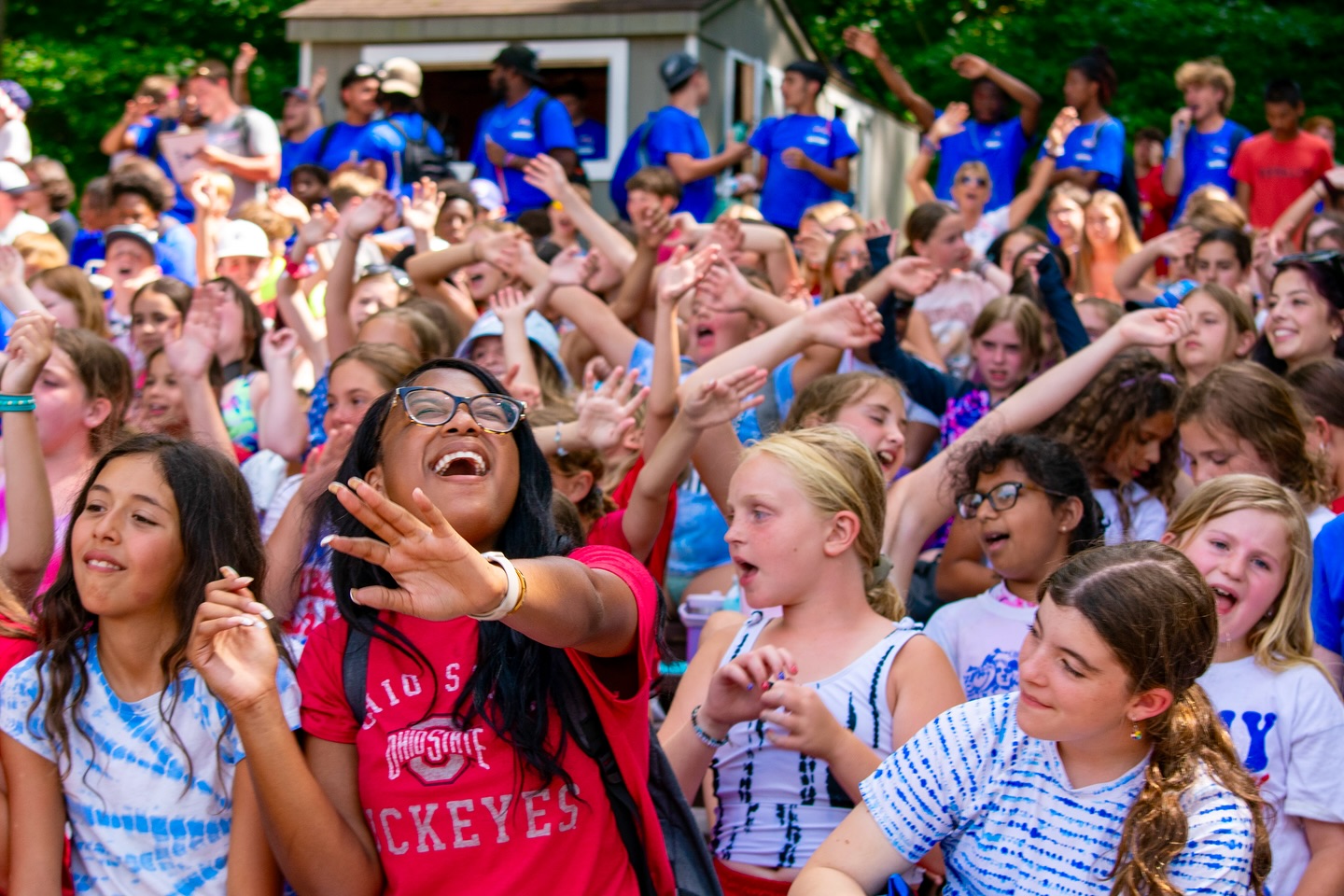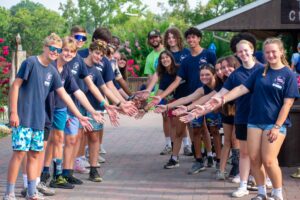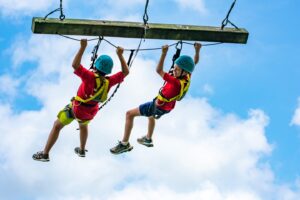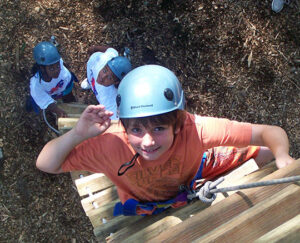
Choosing a summer day camp isn’t just about filling the calendar. It’s about finding the place where your child will grow – socially, emotionally, physically, and mentally – in a setting that is safe, supportive, and aligned with your family’s values. With hundreds of camps across New Jersey and the greater Philadelphia area, it can feel overwhelming to know where to start. Do you choose the camp with the biggest pool, closest to home, the one your neighbor recommends, or the one that promises ‘non-stop fun?’
The truth is, a great camp is not defined by activities alone, but by the outcomes it creates for your child.
This guide will help you evaluate camps the way experienced parents and educators do – with clarity, experience, and a focus on what matters most.
Start With the Right Question: What Do I Want My Child to Gain From Camp?
For some parents, convenience is of top importance. Some want structure or enrichment programs. Others want outdoor freedom and unstructured play. Before you compare camps, answer the real question:
“What kind of person do I want my child to become over the summer?”
Do you want them to become…
- Confident?
- Independent?
- Socially resilient?
- Comfortable trying new things?
- Connected with nature?
- Making new friendships?
Once you have the goals in mind, the right camp becomes easier to identify.
Understand the 3 Main Types of Summer Camps
| Type | Best For | Typical Format |
|---|---|---|
| Day Camps | Ages 3–15, kids home in the evenings | 9 AM–4 PM, multi-activity |
| Specialty Camps | Programs with a single focus (theater, robotics, sports) | 1–2 skills, often indoors |
| Overnight Camps | Ready for independence + living away from home | 1–7 weeks away |
If your goal is balanced social development, outdoor play, and whole-child growth, a traditional day camp is the most versatile choice.
Top 12 Questions Every Parent Should Ask Before Enrolling
-
-
-
-
-
- Who is supervising my child, and how are they trained?
- What are the staff-to-camper ratios – not ‘in-general,’ but in practice?
- Is the camp accredited by the American Camp Association, plus the state of NJ/PA?
- Are the activities age-appropriate and progressive, or one-size-fits-all?
- What happens when it rains? Extreme heat? When a child is upset? When there’s an allergic reaction?
- Does the camp teach values and life skills – or just entertain kids?
- Do returning families stay for multiple years?
- Do alumni come back to work there?
- Is the camp truly inclusive- Diversity? Single gender or mixed gender activities? Are there kids with additional needs?
- How responsive is the customer service?
- How does the camp communicate with parents?
- Is transportation provided, meals/snacks included?
-
The more confidently a camp answers these questions, the more likely it can deliver a meaningful summer experience – and not just day care with sunscreen.
 Accreditation and Safety Should Never Be Assumed
Accreditation and Safety Should Never Be AssumedA camp can look like lots of fun – and still lack basic protections.
Ask:
- Is it accredited by the American Camp Association (ACA)?
- Is it inspected by the State of New Jersey?
- Are lifeguards Red Cross certified?
- Are background checks, including fingerprinting required for all adult staff?
- Is there a nurse or EMT on-site – not just on-call?
- Are emergency plans rehearsed — or tucked away in a binder?
If a camp representative hesitates, avoids specifics, or says “we’ve never had a problem,” keep shopping.
A Camp Where Your Child Doesn’t Outgrow the Experience – They Grow With It
Great camps have a progression. The longer a child stays, the more responsibility, freedom, and leadership they gain.
At Liberty Lake, for example:
- Ages 4–5: Learn routines, explore interests, and make their own choices with supervision
- Ages 6–9: Try new activities, deal with transitions, meeting new + different people
- Ages 10–13: Take on more responsibility and challenges, manage group dynamics
- Ages 13–15: Enter Teen Leadership Program, with mentorship and service pathways
If a camp looks the same for a 6-year-old and a 12-year-old, it is designed for occupancy – not growth.
Watch How a Camp Talks About Screens, Social Skills, and Community

Parents are not just fighting boredom anymore – they are fighting isolation, increased anxiety, and screen addiction. A great camp:
✔ Creates real friendships
✔ Teaches conflict resolution with human guidance
✔ Removes screens so kids rediscover movement and imagination
✔ Gives kids room to fail safelyRed Flags That Signal a “Fun But Forgettable” Camp
- No clear value system
- Staff hired last-minute or mostly under 18
- No mention of training hours or certifications
- Photos show facility or equipment, not happy children interacting
- Programs look identical for every age group
- Parents never mention growth, only fun
- No alumni or returning campers/staff – high turnover every year
Your child deserves more than a program that fills time.
How Liberty Lake Measures Up (Side-by-Side Framework)
Parent Priority What Many Camps Offer What Liberty Lake Offers Safety General rules Certified lifeguards, RN staff, ACA Accreditation Staff Training 1–2 day orientation Multiple days & hours of structured training Activities 3–5 rotating stations Freedom to choose from 60+ skill-based programs Social Growth Survival of the fittest Character-based community system of values Age Fit One-size-fits-all 5 age divisions + leadership program Longevity 1–5 year old camp 25 years + returning alumni Final Step: Visit Before You Enroll
The best test isn’t the brochure – it’s the feeling you get when you walk the campus, meet the staff, and experience the culture in motion.
Here’s some next steps:
✔ Schedule a tour
✔ Attend an open house
✔ Meet the Directors!
✔ Watch campers interact – not just in activities, but their attitudes toward each other
✔ Listen for kindness, teamwork, and counselor engagementIf you walk away thinking, “I wish I could have gone here as a kid,” you’ve found the right camp.
-
-
-

 Best Day Camp in New Jersey
Best Day Camp in New Jersey